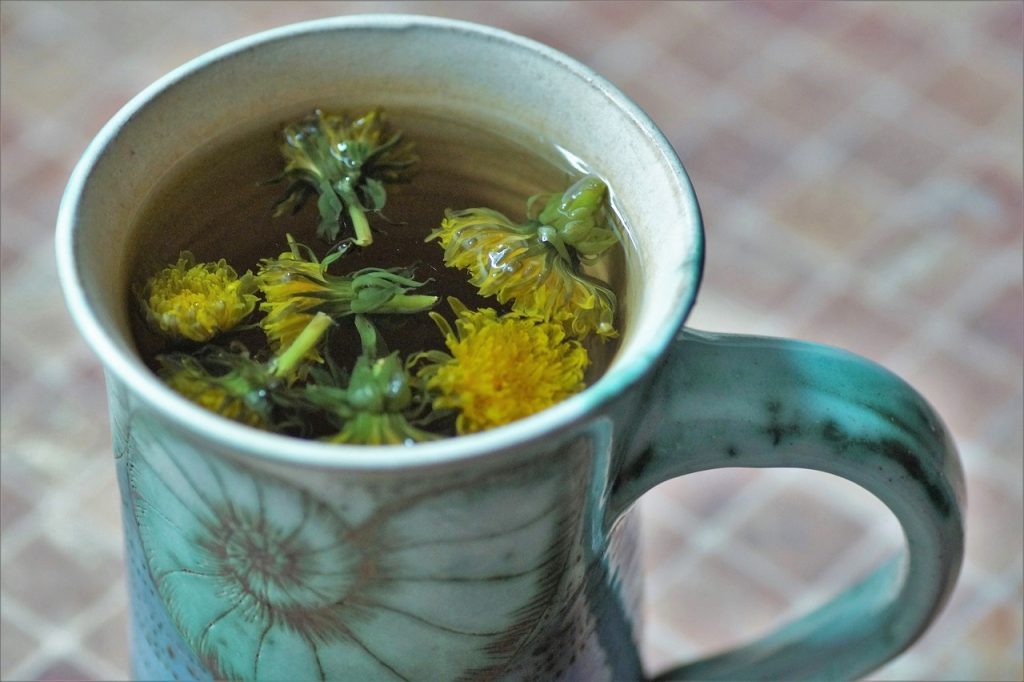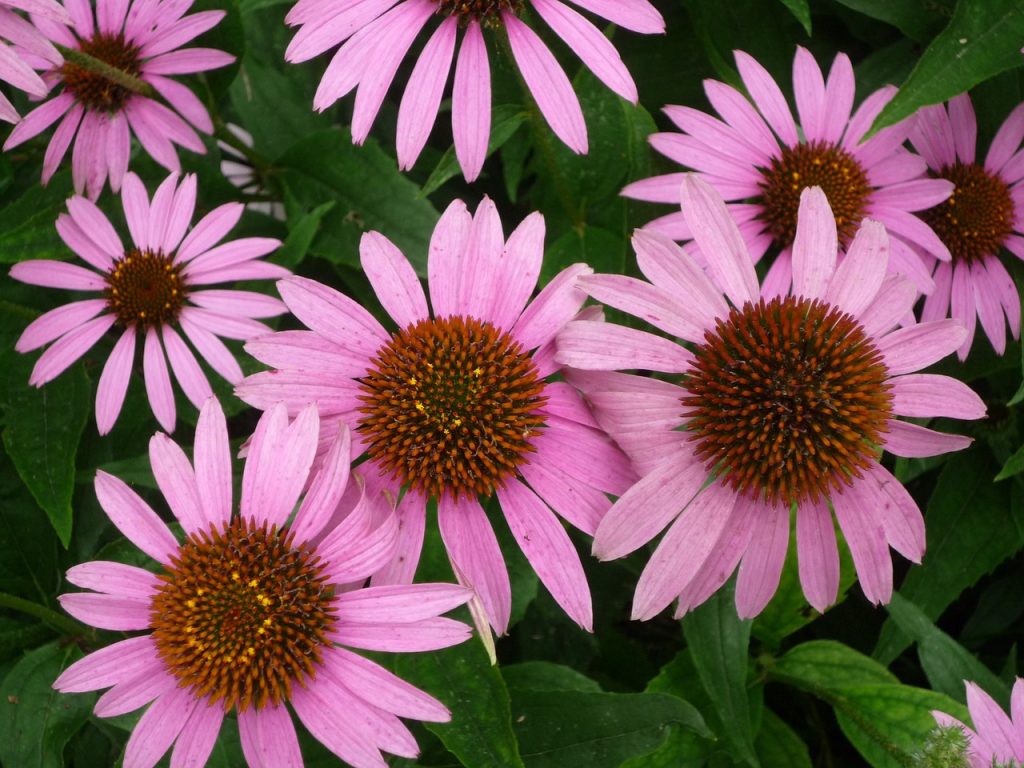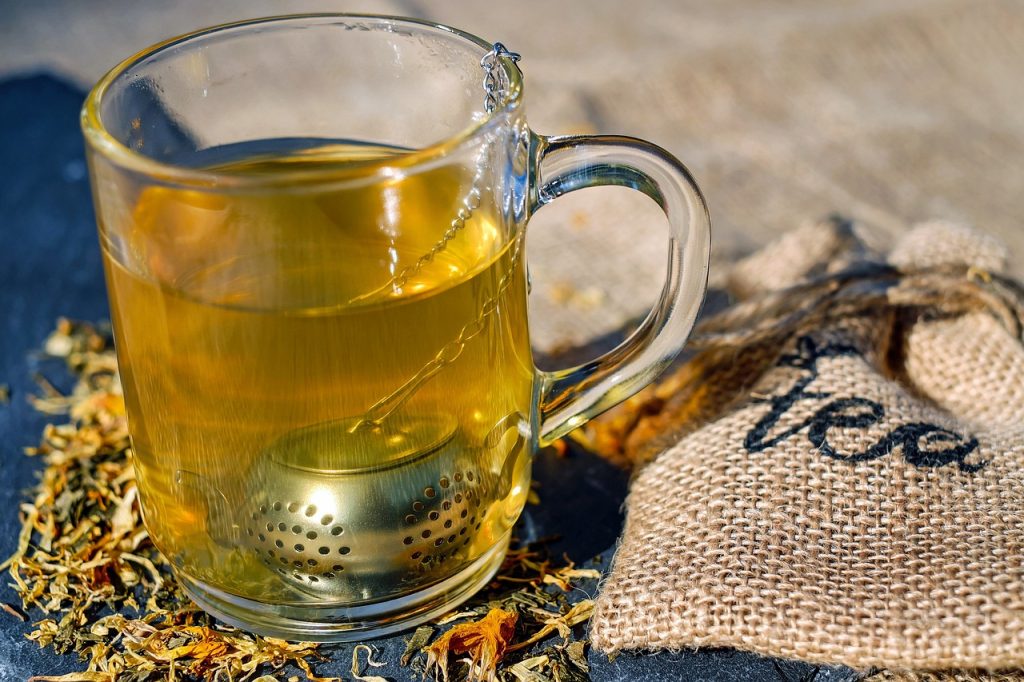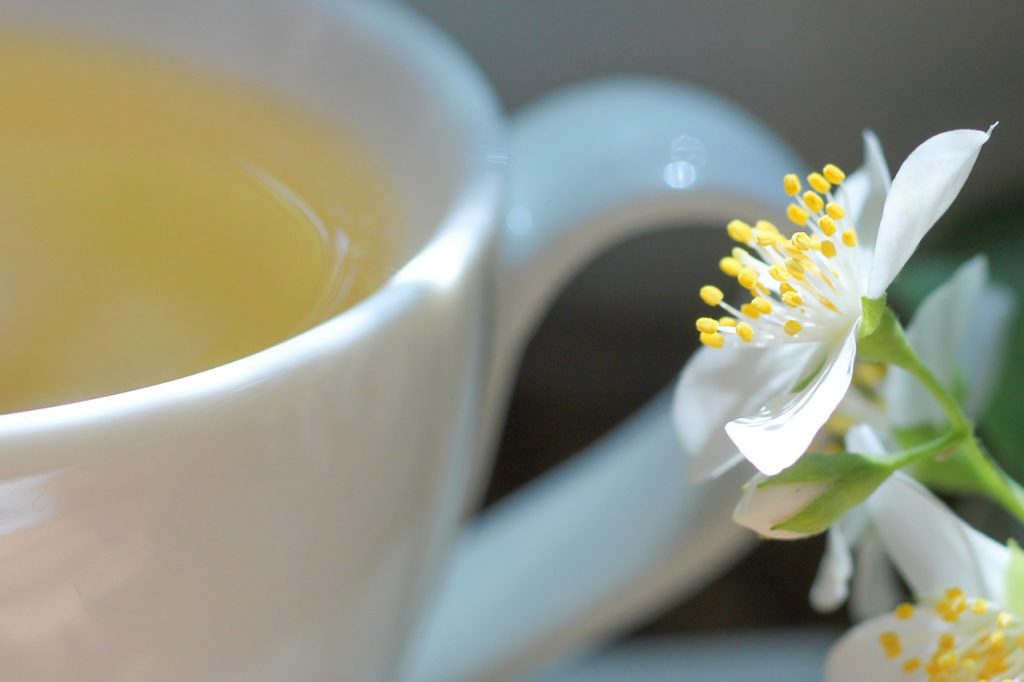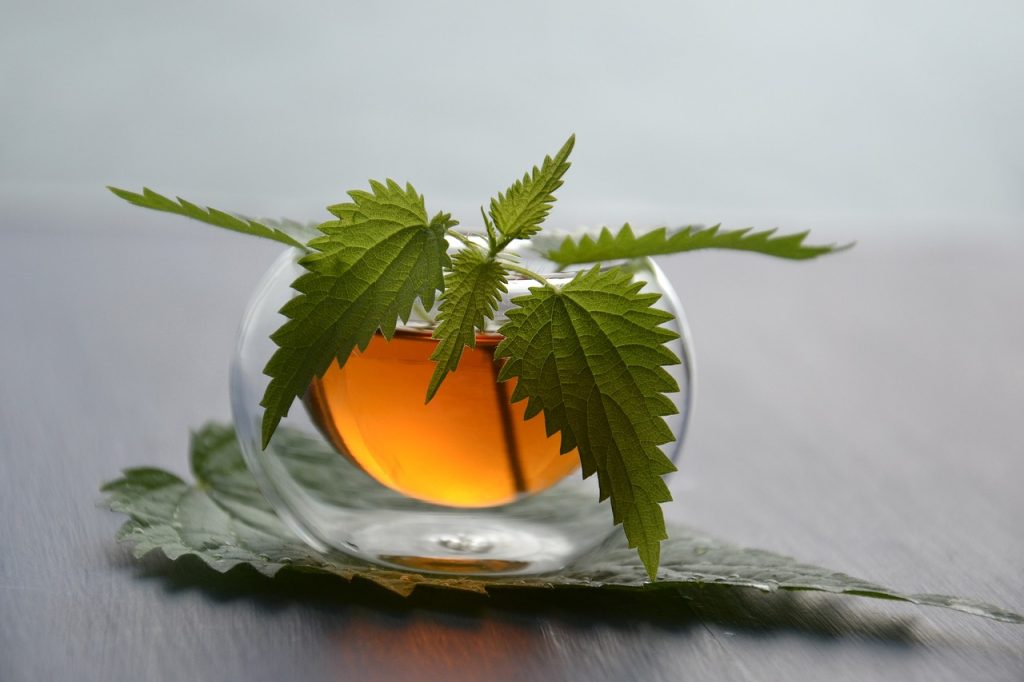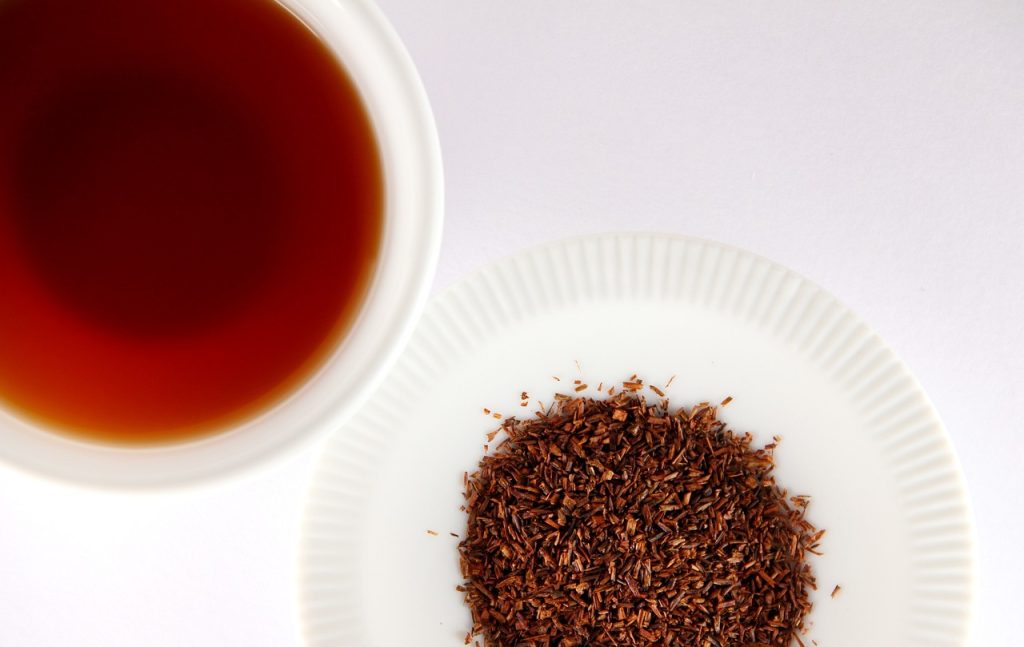Herbal tea benefits for good health and wellness turn this beloved beverage into something more than simply a soothing, delicious beverage to enjoy with friends or over a good book. From helping to relieve insomnia or calm an upset stomach to fighting viruses and infections, beneficial herbal teas can support us in many ways.
Herbal teas are commonly referred to as “herbals,” “infusions,” or “herbal tisanes.” Herbal teas don’t contain tea leaves from the Camellia sinensis tea plant (which gives us our traditional teas) – instead, naturally caffeine-free herbal teas are made from the roots, leaves, seeds, flower
There are hundreds of different herbal teas and herbal tea blends to choose from! No matter what your taste preferences are, you’re sure to find one – or many – herbal teas to suit you.
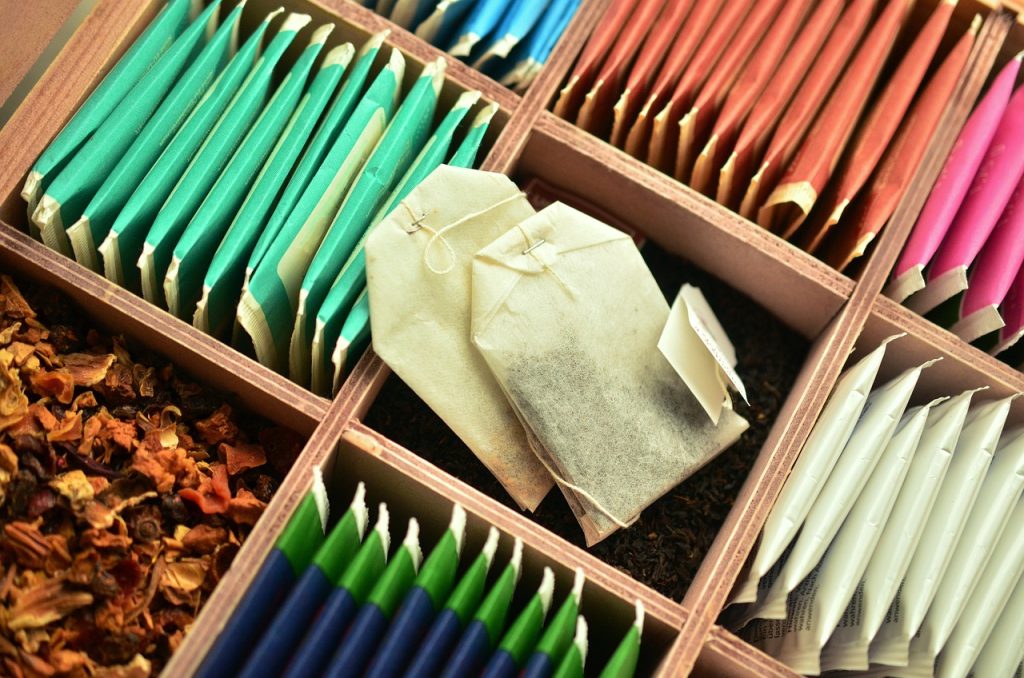
Herbal Tea Benefits
Herbal tisanes have a long history of medicinal and therapeutic use worldwide. And, while the many herbal teas available to us vary significantly in their flavour, fragrance, and healthful properties, herbal teas, in general, can provide these essential wellness benefits:
Herbal teas are simple, effective, inexpensive, caffeine- and drug-free ways to enjoy the taste and benefits of herbs and spices.
By drinking herbal tea, you’re also providing yourself with some much-needed hydration!
And, your senses will be pleasantly stimulated by herbal tea… the warmth of the cup in your hands… the visual pleasure in the vibrantly or delicately coloured beverage… the aromatherapy of the delicious fragrance… and, finally, the calming deliciousness as you sip your tea.
In many cultures, herbal teas have been used for centuries to ease digestion, boost immunity, reduce stress, encourage relaxation, and more. Whatever ailment you are looking to ease or relieve – an upset stomach, restlessness, hormonal imbalance, anxiety, arthritic pain and swelling, a cold or stubborn cough – chances are there are one or more herbal teas that may help.
Some Best-Loved Herbal Teas and Their Benefits
Are you looking to try a new herbal tea or interested in herbal tea benefits? Let’s look at some of the goodness of several favourite herbal teas. Browse through our site to learn more about these much-loved herbal teas, or read more below about some of the more popular ones and get a taste of their benefits.
Chai
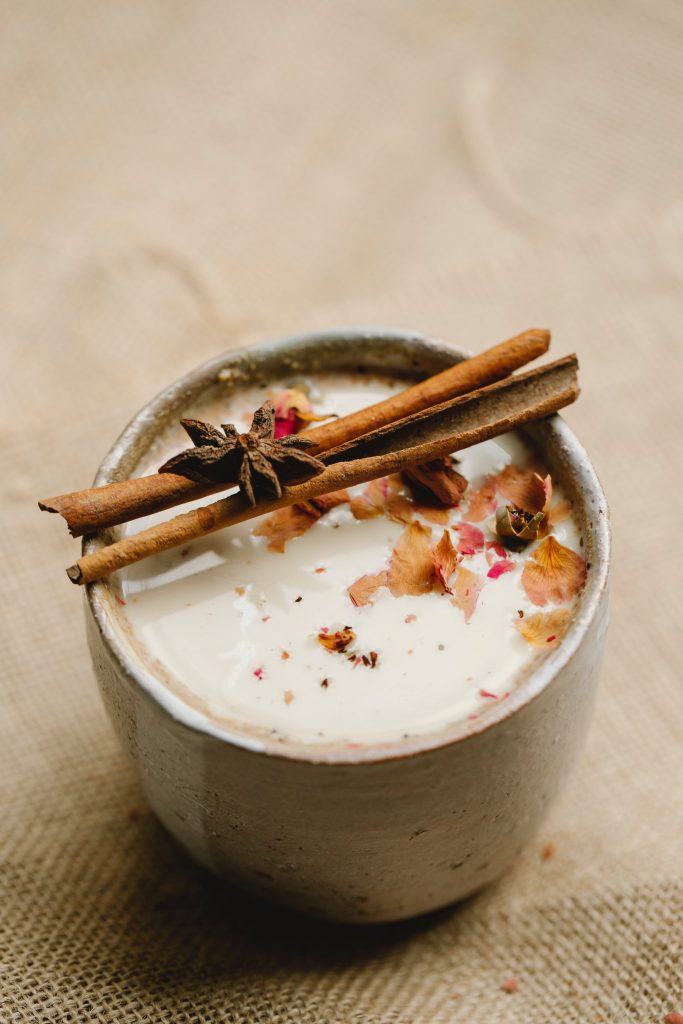
Chai’s rich flavour and many warming, beneficial spices (such as cinnamon, cardamom, cloves, fennel, peppercorn, star anise, nutmeg, and ginger) make it an ideal autumn or wintertime tea or when you’re craving a spicier flavour. Enjoy this tea for its anti-inflammatory and antioxidant properties, to boost your immune and digestive systems, and to feel calmer and restored.
Remember, chai can be caffeinated if made with black tea, so be sure to check the label before purchasing if you’d prefer a caffeine-free herbal tea.
Chamomile Tea
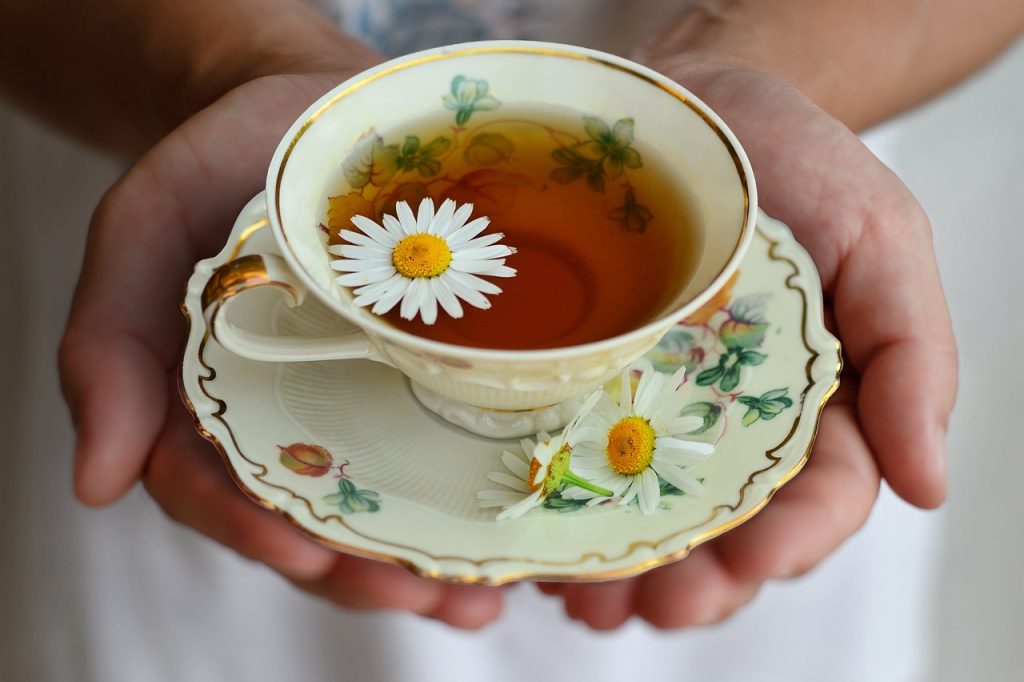
One of the most popular herbal teas, chamomile tea, can help us in many ways. Fragrant chamomile relaxes the body and mind, making it a perfect tea before bed or to help you unwind after a stressful day. Chamomile is a common ingredient in “night-time” herbal tea blends and some children’s teas.
Research tells us that “apigenin,” an anti-inflammatory agent found in chamomile tea, may help to prevent cancer and stop cancer cells from spreading. To ease aches and pains, soothe a colicky baby, encourage digestion, or relieve irritated skin, steep a comforting cup (or pot) of this age-old medicinal cure-all tea.
Chamomile tea has topical benefits, as well, and can even be used cosmetically.
Chrysanthemum Tea
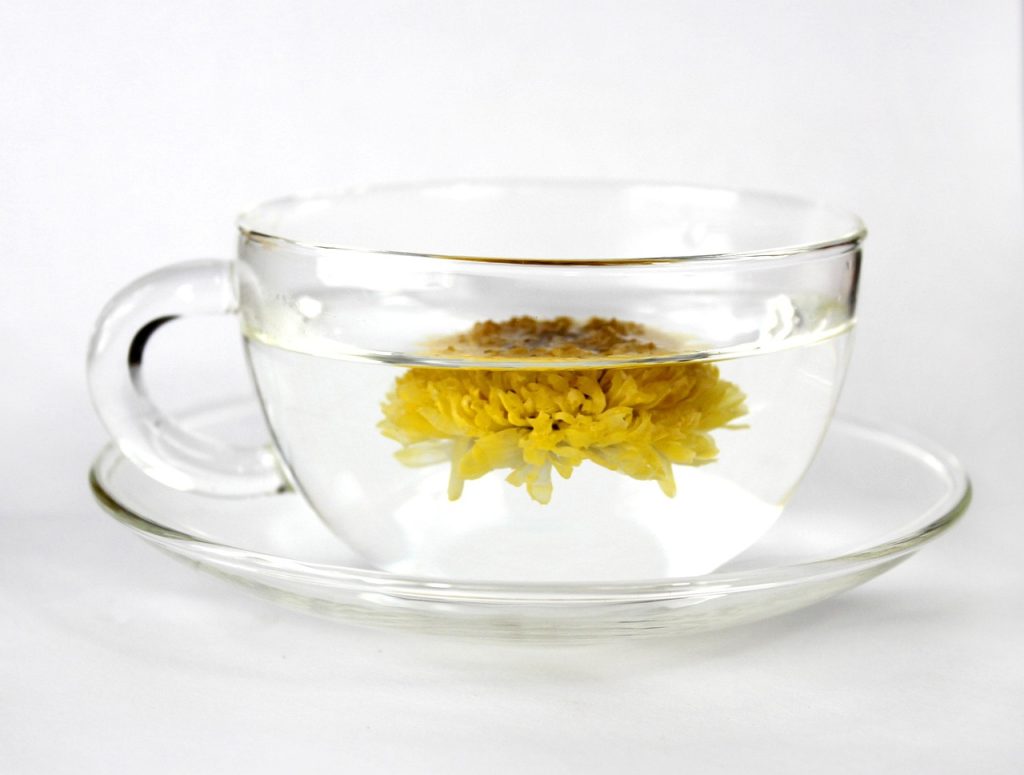
With its naturally sweet taste, chrysanthemum tea reduces food cravings and the urge to snack. And this tea is good for heart health, boosts immunity, and can ease painful headaches. Chrysanthemum tea also reduces excess body heat from illnesses like feverish flu.
Cinnamon Tea
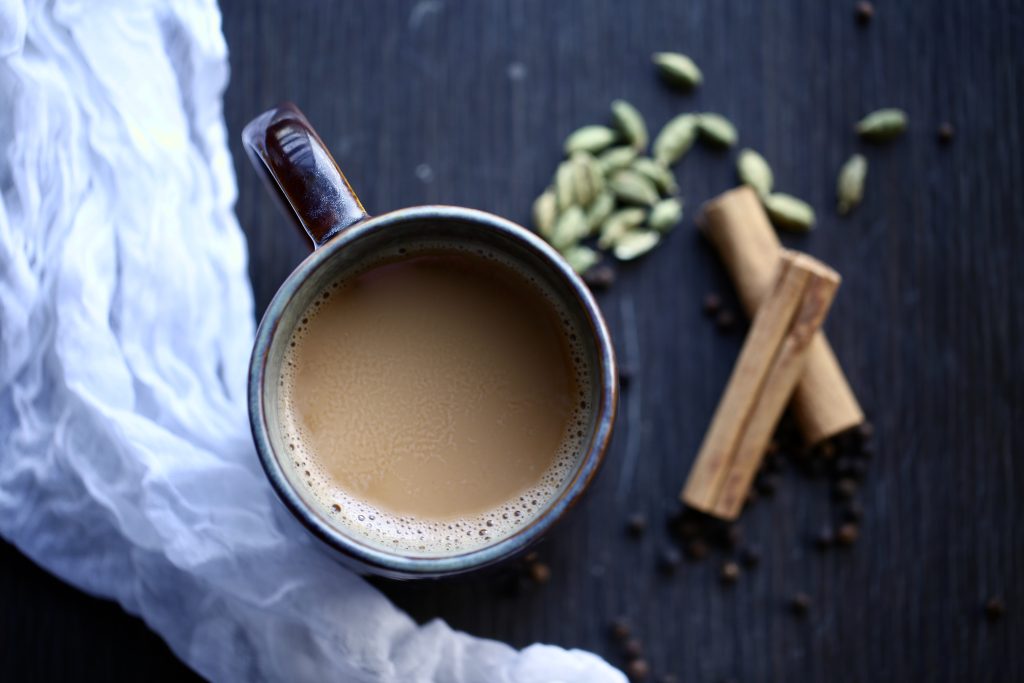
Wonderfully aromatic cinnamon tea is simple to make from scratch and has many health benefits, from fighting viruses and warding off chills to soothing an upset stomach and easing arthritic aches and swelling. Cinnamon tea is also good for your heart and mood and may ease menstrual cramps and help with weight loss. Organic cinnamon tea is a safe, healthy choice that is good for the environment, too! You’ll find some tips here for choosing the best cinnamon and how to store cinnamon sticks and ground cinnamon.
These are just a few of the beautiful herbal tisanes available to us… Keep reading here about more well-loved herbal teas and herbal tea benefits.
More Health Benefits of Herbal Tea
Usually, thinking of the health benefits of herbal tea brings to mind how these delicious, refreshing beverages can help to ease or relieve all sorts of physical ailments (like encouraging a sound sleep, boosting sluggish digestion, or easing achy arthritic joints).
But… beneficial herbal teas can enrich emotional, mental, and spiritual health in countless ways. Even the soothing ritual of pouring hot water over a favourite loose or bagged tea and quietly waiting while it steeps can bring a few moments of blissful calm into a busy day.
More Favorite Herbal Teas
The beautiful simplicity of herbal teas makes them so easy and pleasurable to add to our daily routine! Enjoyed hot, iced, in a tea latte, or even in a nourishing tea smoothie, herbal teas are a stress-free way to add goodness to our diet and boost health.
Here are more of the best-loved herbal teas that can encourage and support wellness (if you missed our first page of favourite herbal teas and their benefits for good health, you’ll find it here).
Dandelion Tea
This colourful little flower – although considered by many to be a bothersome weed – is bursting with vitamins and minerals. Dandelion tea is so delicious made from scratch using the plant’s leaves, flowers, roots, or any combination of these. This tart herbal tea provides many health benefits – it can gently cleanse the liver, ease constipation, stimulate digestion, reduce fluid retention, and relieve the pain and swelling of arthritis. Add some dandelion tea to your bath to enjoy this tea’s topical benefits.
Echinacea Tea
Echinacea’s remarkable ability to stimulate the immune system to combat disease and infection makes this herbal tea a very effective cold and flu fighter. Add some Echinacea to your day to help prevent colds and flu or to reduce the severity and duration of a cold or infection you already have.
Fennel Tea
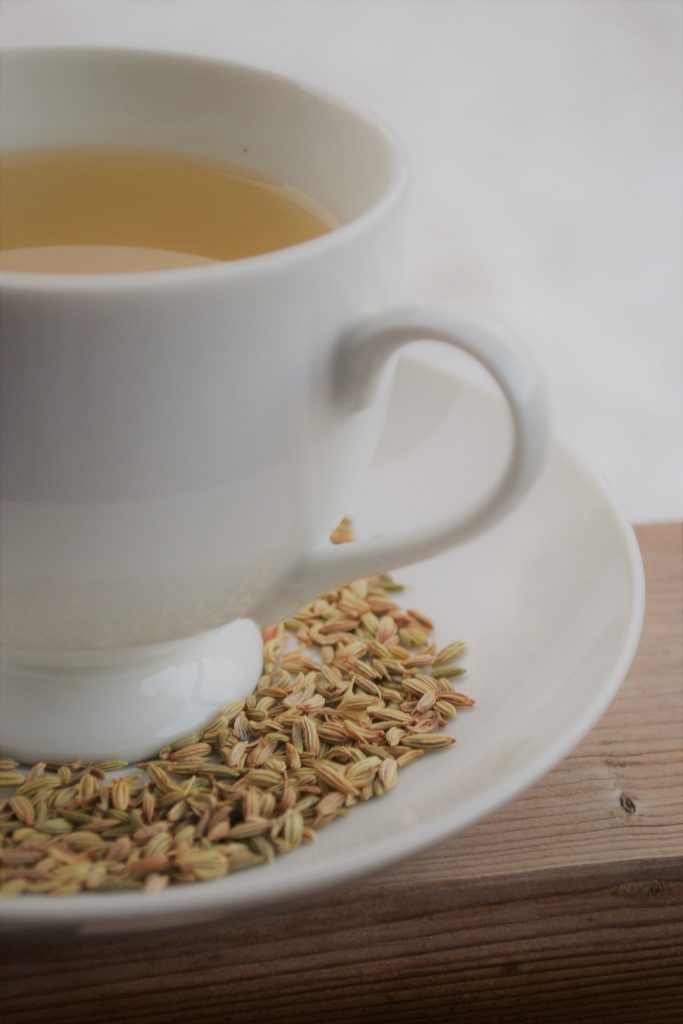
Choose fennel tea, a digestive powerhouse, to ease bloating or acid reflux (fennel is in the same family as dill, which is another beneficial digestive herb). Fennel tea can provide additional benefits, too, such as relieving sinus problems or respiratory symptoms related to illness and soothing a cough or sore throat. Naturally, sweet fennel tastes like liquorice, yet it contains no sugar. If you like the aroma and taste of liquorice candy, you will love fennel tea! Fennel tea is so easy to make from scratch using fennel seeds, too.
Ginger Tea
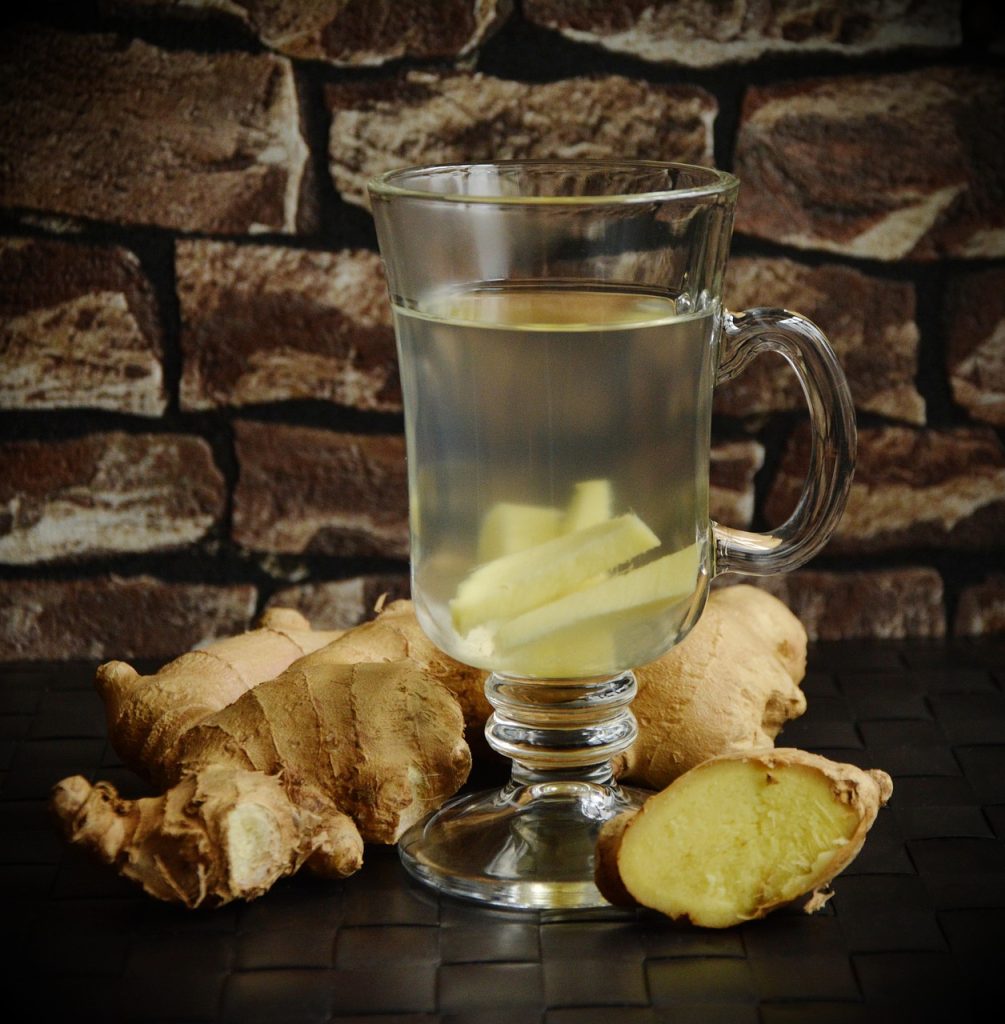
Another herbal tea that is easy to make from scratch, oh-so-warming ginger tea is the perfect drink when you’re feeling chilled or think you may be coming down with a cold. Ginger tea also stops nausea in its tracks, eases the pain of arthritis and rheumatism lowers cholesterol, and can help with weight loss. You’ll enjoy ginger tea’s many topical benefits, too.
| Related: Salabat Recipe
Ginkgo Tea
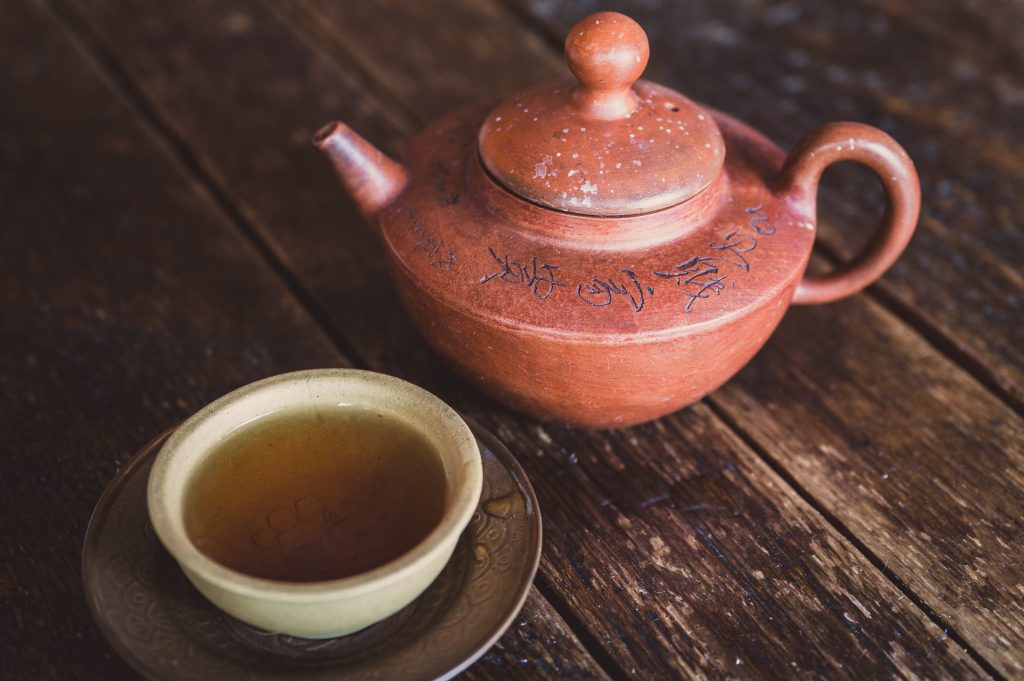
With its ability to enhance brain function, improve concentration, stimulate the nervous system, and combat feelings of fatigue, ginkgo tea is the ideal herbal tisane to enjoy before going to work, exercising, or tackling a challenging task.
Ginseng Tea
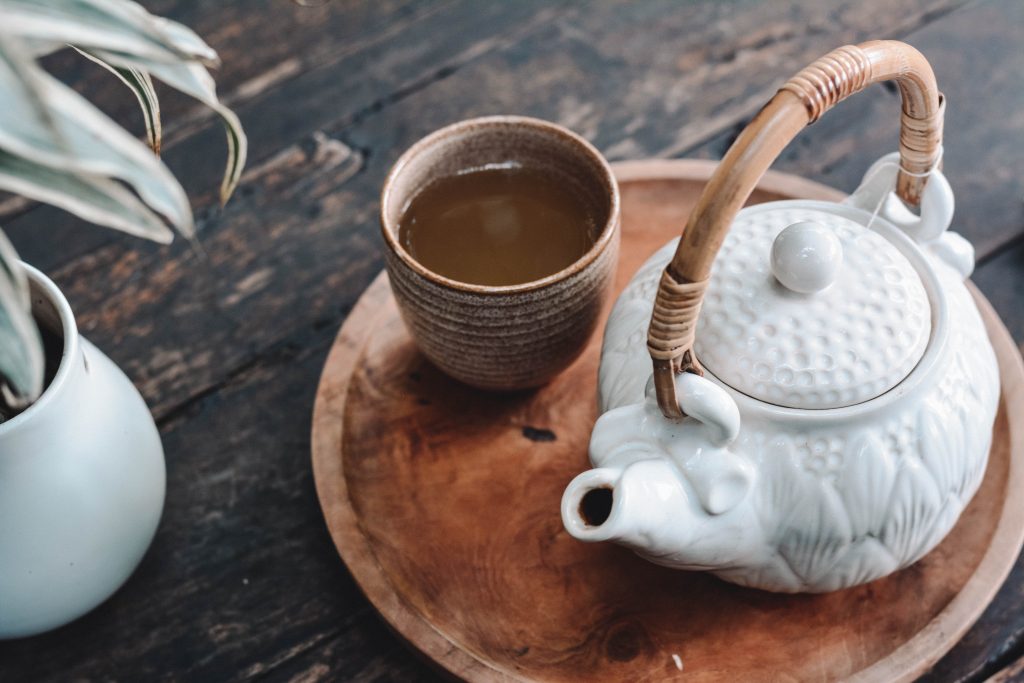
Ginseng tea is a natural way to stimulate vitality, lessen fatigue, and slow ageing. This flavorful tea enhances mental focus and improves memory, alertness, and concentration. Another immune system booster, ginseng also reduces stress and encourages relaxation.
There are many more favourite herbal teas… Keep reading here to learn more about the health benefits of herbal tea.
More about Herbal Teas and Health
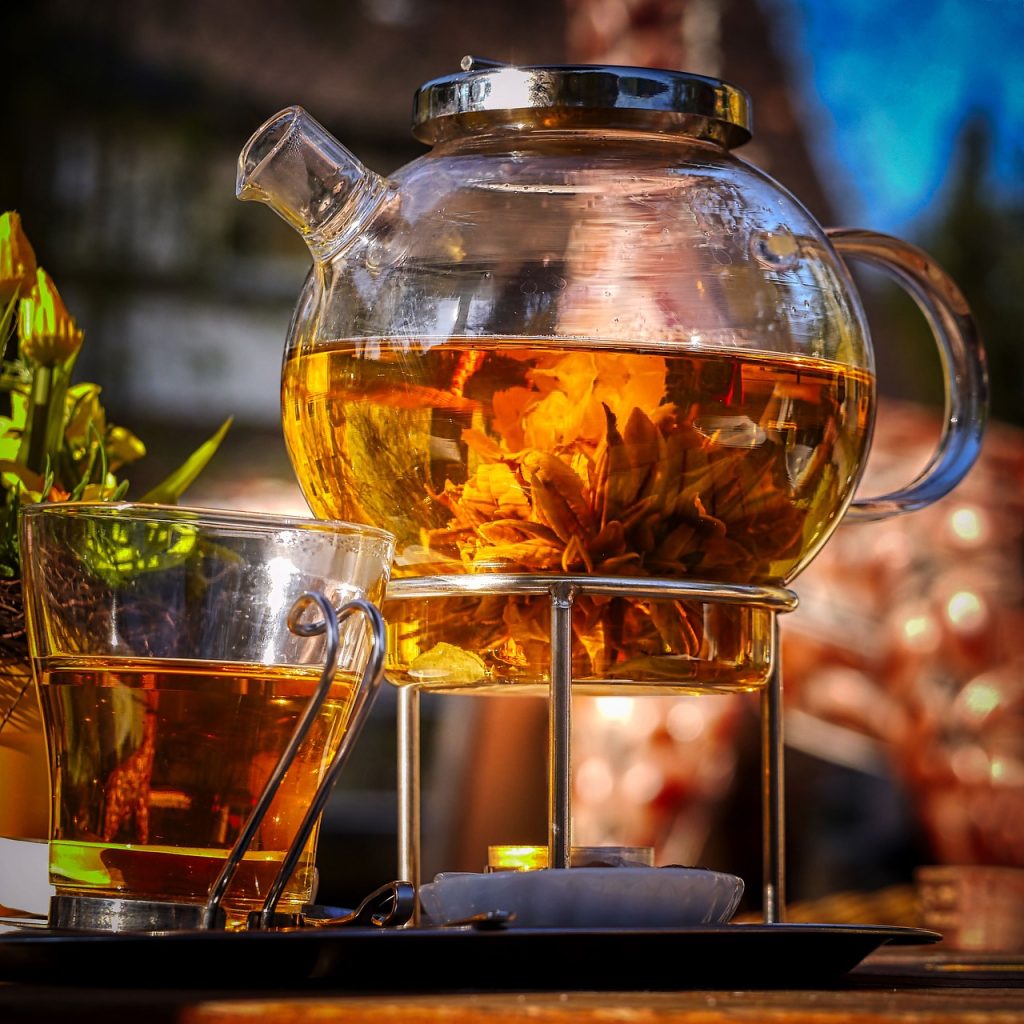
Have you been wondering about herbal teas and health? The benefits of herbal tea are becoming increasingly popular as more of us worldwide search for natural, effective, affordable ways to boost wellness and help us manage common, everyday health concerns for ourselves and our families and friends.
For centuries, people in every culture have used herbs and spices to enhance the taste of food and drink – and to help heal their bodies. Passed from generation to generation, the wealth of information about the healing powers of herbs and spices for our physical, mental, emotional, social, and spiritual selves continues to hold today.
One of the most straightforward and most enjoyable ways to benefit from herbs and spices is in delicious, aromatic herbal teas.
More Herbal Teas and Health Benefits
If you’ve been thinking of expanding your herbal tea stash, your main challenge may be deciding which to choose from the many amazing herbal teas available to us! Keep reading to get to know more about your favourite herbal teas and the health benefits they may provide. (Rather start from the beginning? Go to our Herbal Tea Benefits page for the start of this topic.)
Hibiscus Tea
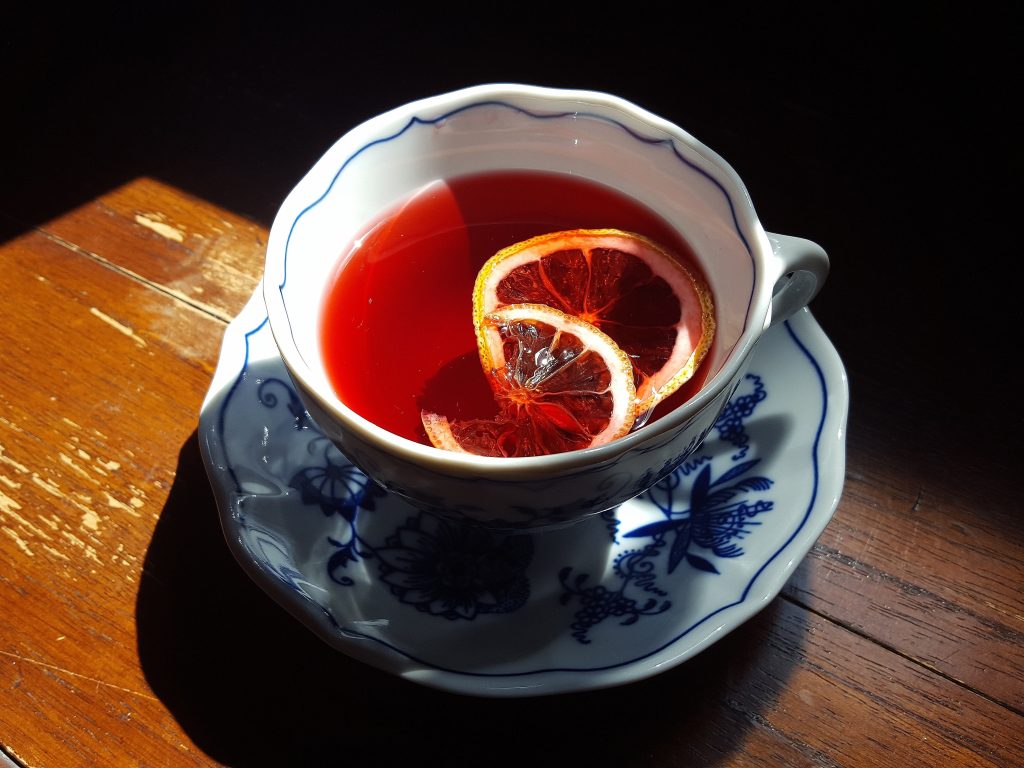
Brewed from dried hibiscus flowers, exotic hibiscus tea is a lovely pink colour with a light, tangy-sweet, fruity, delectable hot or iced taste. Choose hibiscus tea to ease period woes (like cramps), lower high blood pressure naturally, and for a boost in antioxidants, vitamins, and iron. Calming hibiscus tea can relieve insomnia and provide support for healthy weight management, too.
Honeybush Tea
A South African favourite, honeybush tea tastes very similar to its cousin, Rooibos tea. Honeybush has a gentle, sweet flavour and is a beneficial tea when you have a cough, cold, or flu that just won’t quit, long for relief from stomachache or nausea, or need some support in relieving symptoms of menopause.
Jasmine Tea
Jasmine tea has a soothing effect on the nervous system and improves digestion. This fragrant tea will lift your spirits and act as a mental booster, keeping you calm yet energized and focused. Remember that jasmine tea is commonly combined with green tea, so it can contain caffeine. Always check labels to be sure.
Refreshing, fragrant lemongrass tea can reduce fever, ease a sore throat or cough, and relieve various aches and pains, such as joint and muscle pain, headache, tummy aches, and more. It’s also an effective mood and confidence booster! Lemongrass herbal tea has a delicate citrus aroma and taste.
Nettle Tea
Superfood nettle nourishes and strengthens our bodies with protein, amino acids, fibre, and all sorts of vitamins and minerals, providing support for the kidneys and liver. If you are feeling low in energy (physical or emotional), need relief from arthritic pain and swelling, or are looking to ease hayfever or allergy symptoms (such as watery, itchy eyes, sneezing, and excess mucus), nettle tea may be a good choice for you (it provides a host of other health and wellness benefits, too). This amazingly versatile herbal tea is excellent for hair health, as well, and is a lovely addition to an herbal tea bath.
Parsley Tea
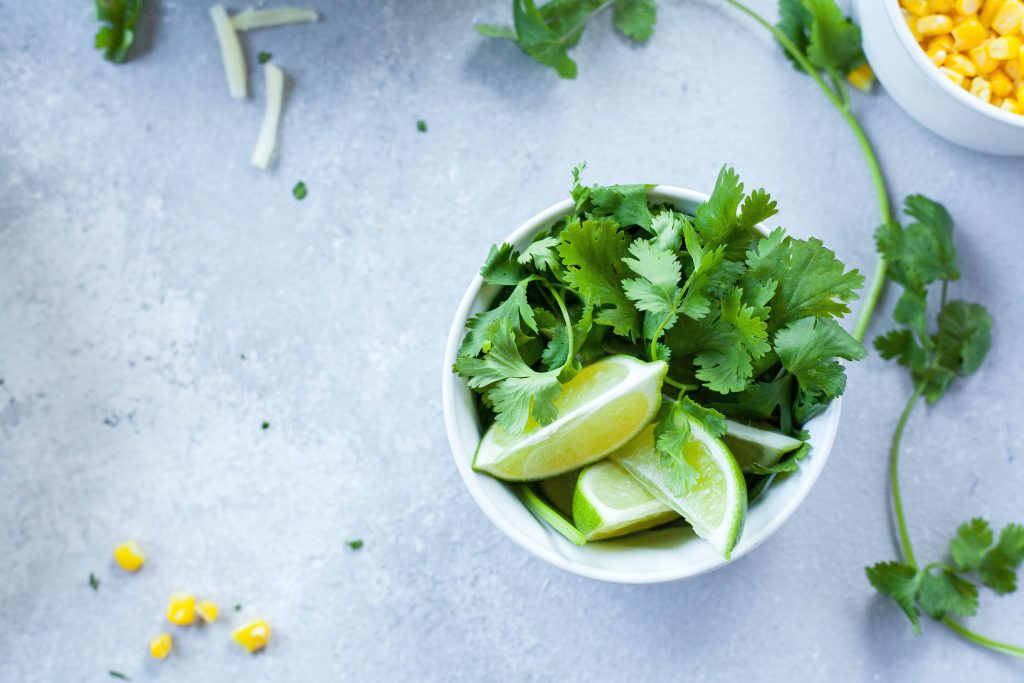
Another immunity-boosting tea, parsley tea, is chock-full of antioxidants and vitamins. This herbal tea is a natural diuretic, enhances kidney function, and helps to relieve bloating and digestive upset.
Passionflower Tea
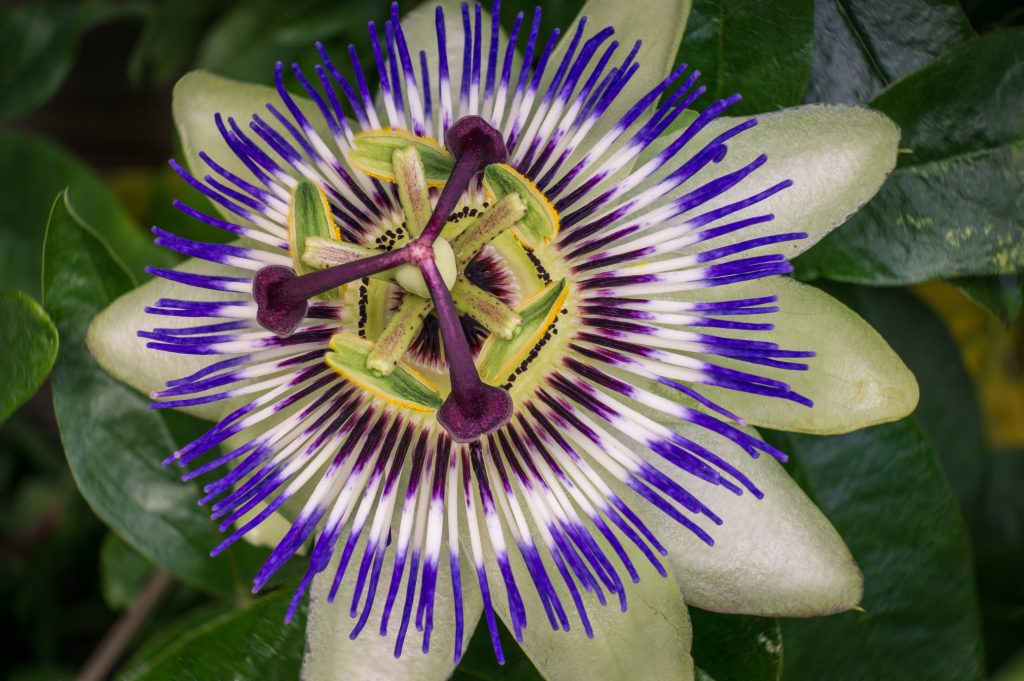
Sipping passionflower tea can help to calm a racing mind. This popular night-time herbal tea is a beneficial addition to your bedtime routine, as it eases stress and anxiety and gently encourages you to fall asleep.
Peppermint Tea
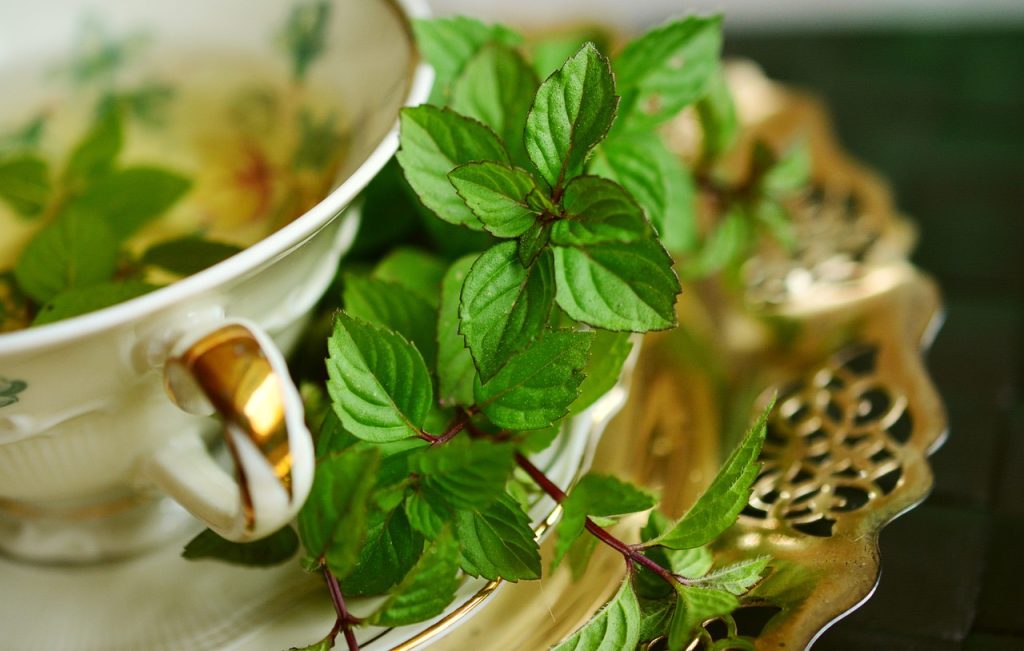
Easy to grow and an aromatic addition to your garden or flowerpot, peppermint can clear a stuffy nose, soothe a sore throat, ease a troubled tummy, and ward off a cold. Enjoying peppermint tea can help to control hunger pangs and curb snacking. One invigorating whiff of peppermint tea can calm you when you’re feeling stressed or anxious, and the uplifting feeling this herbal tea provides makes it a good choice in the morning instead of coffee or before exercising. It’s a very effective natural breath freshener, too.
| Related: Teas for Anxiety
You’ll love peppermint tea served hot or iced, and for relief from the pain and discomfort of head or chest congestion, why not try a therapeutic peppermint herbal tea steam?
We’re not through yet… Keep reading to discover more favourite herbal teas and their health benefits.
Herbal Teas for Anxiety
If you’ve been searching for a natural way to relieve feelings of anxiety, why not try one of the many herbal teas for anxiety? Natural, effective, trusted age-old remedies and herbal teas can help with all sorts of common health concerns, including anxiety, worry, and tension.
In today’s hectic and often stressful world, it can feel more and more challenging to keep anxious feelings at bay. Amongst everyday worries and demands, difficult life circumstances, and distressing world events, persistent anxiety and worry is sadly becoming a far more common struggle for so many of us.
When you need some support with easing anxiety, here are some healing herbal teas that may help.
Your Comments about Teas for Anxiety
If you’ve struggled with anxiety, stress, or worry and have found relief with tea, please share your story with us and other visitors to this page. Click here to share your experience and comments about teas for anxiety and to see what other readers have to say, too.
Chamomile Tea
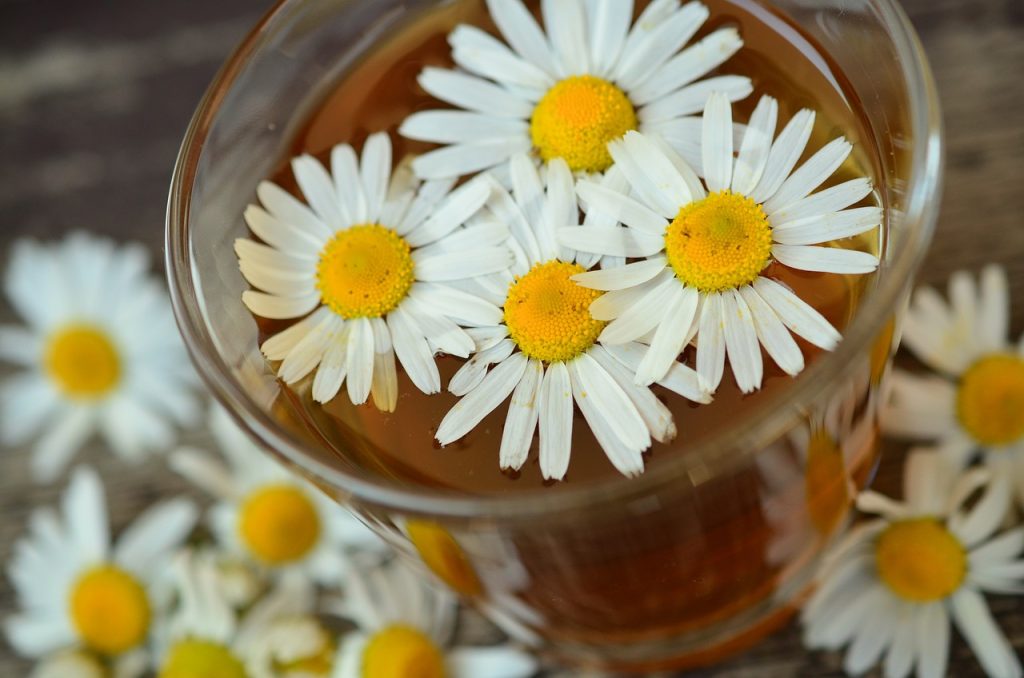
Fragrant, calming chamomile tea is perhaps one of the most well-known (and beloved) herbal teas for anxiety. Not only does traditional medicine support chamomile tea as a simple, very effective anti-anxiety remedy, but current studies support this herbal tea’s reputation as a nerve relaxant and stress reliever.
And, if fretfulness or stress has been keeping you up at night (insomnia often goes hand-in-hand with increased worry), sip some chamomile tea (aka the “night-time tea”) before bed – its mild sedative effects will encourage a dream- and worry-free sound night’s sleep.
Many of our readers turn to chamomile herbal tea for anxiety – you can read their comments and suggestions here.
Lavender Tea
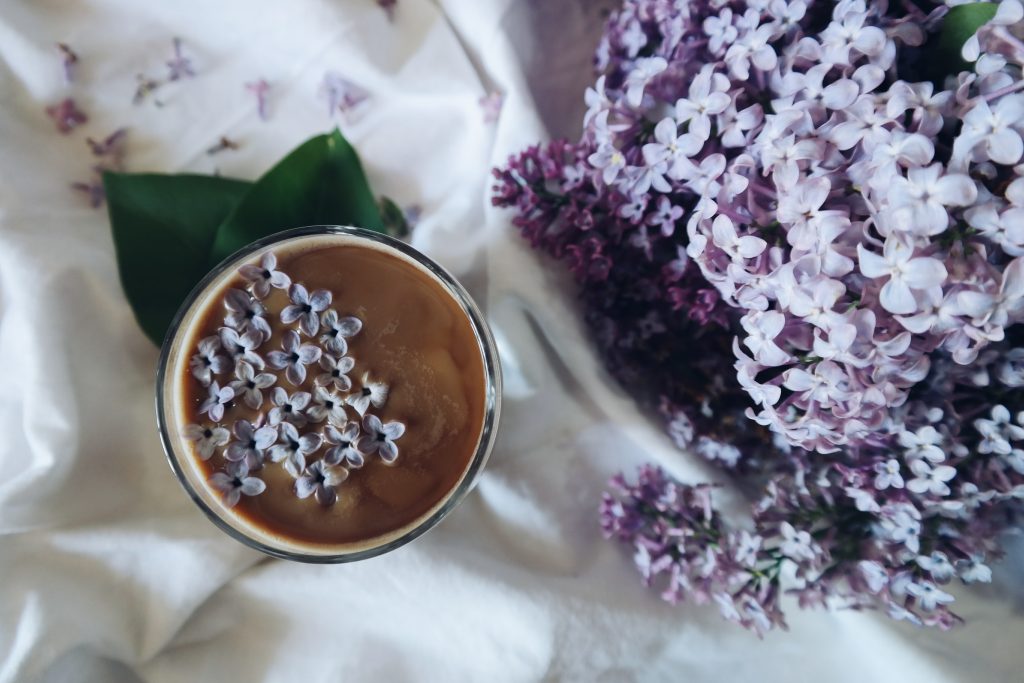
Feeling tense, out of sorts, disheartened, exhausted? Relieve anxiety, soothe and strengthen your nerves, and feel more balanced with lavender tea. If worry or stress leaves you with tummy troubles, lavender tea is also great for comforting a churning stomach. When your days seem to overflow with stressful events, why not take a travel mug of lavender tea (hot or iced) with you, ready to sip when you need an emotional boost?
Studies show that the mere aroma of lavender can alleviate anxiety and insomnia and lift your spirits, so if you brew some fragrant lavender tea before bed, inhale its lovely scent deeply between sips.
Blending Herbal Teas for Anxiety
Not everyone enjoys the flavours or aromas of each herbal tea – for example, some find the taste of chamomile tea too “grassy” on its own. If you’re not enjoying the taste of one of these herbal teas for anxiety, why not blend two or more together? You’ll have the benefits of each tea, plus a flavour that’s more appealing to your taste buds. Adding a bit of organic honey or another beneficial sweetener is another way to enhance the taste of an herbal tea.
Valerian Tea
Valerian tea is another tea of choice for many who struggle with worry, tension, and stress. Not only will this herbal tea calm and quiet your nerves when you’re feeling overwhelmed with anxiety, it also eases pain (such as back pain or headache), relaxes muscle tension, and encourages peaceful sleep.
A few safe-use tips for valerian tea: Some find this tea agitating or stimulating (rather than calming), so carefully monitor your body’s (and mind’s) response before deciding whether to add this tea to your relaxation routine. Also, please check with your healthcare provider before consuming valerian tea if you’re expecting or breastfeeding or if you’re being treated for or taking medication or herbal remedies for any health condition.
Rooibos Tea
Naturally sweet and fruity Rooibos tea is another anti-anxiety herbal tisane. Steep and enjoy some Rooibos to lower your cortisol levels (cortisol is known as a “stress hormone,” and too much cortisol over an extended period is hard on your body and your spirits).
Another benefit of Rooibos is that it’s a popular sleep aid, helping to quieten and relax you and promoting good sleep.
Rooibos herbal tisane is a well-liked tea for children, too, so if your child is fretful or distressed, a cup of this nourishing tea may help to calm her or him.
| Related: Rooibos Tea for Babies
Keep reading here to discover more herbal teas for anxiety, as well as ways to use teas topically for anti-anxiety benefits. And, to share your experience with teas for anxiety with our other readers, please click here.
Sources
Amsterdam JD, Li Y, Soeller I, et al. A randomized, double-blind, placebo-controlled trial of oral Matricaria recutita (chamomile) extract therapy for generalized anxiety disorder. J Clin Psychopharmacol. 2009 Aug;29(4):378-82.
Amsterdam JD, Shults J, Soeller I, et al. Chamomile (Matricaria recutita) may provide antidepressant activity in anxious, depressed humans: an exploratory study. Altern Ther Health Med. 2012 Sep-Oct;18(5):44-9.
Cappello G, Spezzaferro M, Grossi L, et al. Peppermint oil (Mintoil) in the treatment of irritable bowel syndrome: a prospective double-blind placebo-controlled randomized trial. Dig Liver Dis. 2007 Jun;39(6):530-6.
Gladstar, R. Medicinal Herbs: A Beginner’s Guide. North Adams, MA: Storey Publishing, 2012.
https://www.nimh.nih.gov/health/statistics/prevalence/any-anxiety-disorder-among-adults.shtml
Kline RM, Kline JJ, Di Palma J, Barbero GJ. Enteric-coated, pH-dependent peppermint oil capsules for the treatment of irritable bowel syndrome in children. J Pediatr. 2001 Jan;138(1):125-8.
Lipovaca M, Chedrauib P, Gruenhutc C, et al. Improvement of postmenopausal depressive and anxiety symptoms after treatment with isoflavones derived from red clover extracts. Maturitas. 2010 March;65(3):258–261.
McKay DL, Blumberg JB. A review of the bioactivity and potential health benefits of peppermint tea (Mentha piperita L.). Phytother Res. 2006 Aug;20(8):619-33.
Merat S, Khalili S, Mostajabi P, et al. The effect of enteric-coated, delayed-release peppermint oil on irritable bowel syndrome. Dig Dis Sci. 2010 May;55(5):1385-90.
Tillotson, AK. The One Earth Herbal Sourcebook. New York, NY: Kensington Publishing Corp., 2001.
Wang Y, Tang H, Nicholson JK, et al. A Metabonomic Strategy for the Detection of the Metabolic Effects of Chamomile (Matricaria recutita L.) Ingestion. J. Agric. Food Chem. 2005;53(2):191–196.
Zak, V. 20,000 Secrets of Tea. New York, NY: Dell Publishing, 1999.

